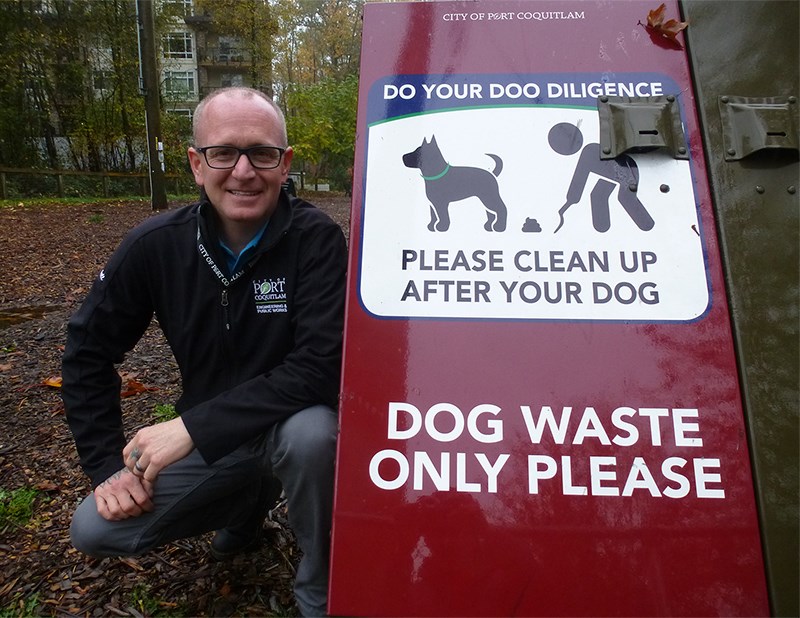Carrying a bag of poop when walking Fido takes some of the joy out of pet ownership.
But the city of Port Coquitlam has found a way for people to dispose of dog waste conveniently while also eliminating some of the environmental downsides of pet waste management.
Instead of leaving the poop behind, dropping a bag of it in city waste carts or firing it onto the nearest lawn or bush, dog owners can drop it into one of 19 special dog waste bins placed throughout the city, including two dog parks.
“Then it’s not going to landfills,” said Mitchell Guest, PoCo's acting city parks manager, who said the bins will be rolled out in the next few weeks, complete with wraps encouraging dog owners to dispose of their pet waste properly.
He said pilot projects at two dog parks indicated a willingness to dispose of waste properly so the idea of expanding the program made sense. It’s too early to say how much of the doggy doo is being collected as the contracted company, Scooby’s Dog Waste Removal Service, has just started the program.
But Guest said the dog waste bins will help the city be more environmentally friendly as well as convenient for dog owners as the bins will be emptied and taken to a waste water treatment plant for safe disposal.
The annual cost to empty 19 bins will be approximately $38,000, according to the city, and a one-time cost of $4,000 to wrap 19 bins.
As for locations, Guest said they were chosen based on a waste audit that showed where they were most needed.
The business of dog waste removal is “picking up,” according to Scooby’s owner Bill Droeske, who said eight cities have contracted with his company to pick up dog waste and Metro Vancouver is also a big customer.
Dog waste bags are cut open at the company’s warehouse and the waste trucked to the Iona sewage treatment plant.
More cities are collecting the waste to keep it out of the landfill because it creates methane gas, which is a big greenhouse gas contributor.
“Everything organic in the landfill creates greenhouse gasses,” Droeske said, noting, "The basic idea is to divert as much of this away away from landfill as possible.”



